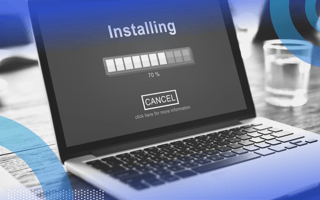Freeware is a portmanteau of free and software. In programming and software development, freeware refers to a proprietary software application that’s free but often maintains restricted usage rights.
Freeware is usually (although not necessarily) a closed source with one or more restricted usage rights. You can think of freeware in contrast to commercial software (like Microsoft Office Suite) that’s sold for profit. Instead, freeware products may be distributed for a business or commercial purpose with the aim to expand the market share of a premium product. Some popular examples of closed-source freeware include Free Studio, Adobe Reader and Skype.
Freeware vs. Open-Source Software: What’s the Difference?
While freeware is free software, it nevertheless maintains its copyright. Alternatively, open-source software is both free and publicly available to use, modify, repackage and redistribute with no limitations.
Is Freeware Malware?
There are many safe freeware applications available online but be wary. Generally, freeware applications are available with limited or restricted features and might ask for paid subscriptions in order to use advanced features. Sometimes freeware comes with an ad campaign to promote and generate revenue for some other software.
Sometimes freeware applications are paired with malicious add-ons or pop-ups that lead to undesirable sites to promote alternative products (or worse, steal your information).
When downloading freeware from third-party app stores or websites, pay attention to the reviews to make sure others have had a positive experience with the software that’s free for download. This will help you avoid putting yourself at risk.
Is It Freeware or Open-Source Software?
The following are the required freedoms a user must be granted for the software to be considered free (or open-source) software. Note that freedoms one, two and three require access to the source code.
- Freedom 0: You’re able to run the program for any purpose.
- Freedom 1: You can study how the program works and change it to make it do whatever you need.
- Freedom 2: You’re given the ability to share and make copies of the software so you can help others.
- Freedom 3: You can improve on the program and release your improvements (or modified versions) to the public.
A few examples of free software include GIMP, LibreOffice and Apache HTTP Server.
How Is Freeware Different From Free Software?
Freeware is cost-free software but free software is copyright-free software. In other words, freeware is software under copyright but available at no cost while free software is software with no limitations or constraints.
Free software is often called open-source software. Open-source software is popular online and there are thousands of free software repositories available to reuse, modify or overwrite based on a developer’s needs. The end user may even redesign the software to make it available to other developers with enhanced features.
Developers can then publish their redesigned software programs or applications for the general use of others as a new open-source product. There is no restriction on how one builds, packages, and releases open-source software. Attempting to perform these actions on freeware would likely result in copyright infringement.
What Are the Restrictions on Freeware?
A free program cannot rely financially on commercial advertising. What’s more, freeware requires a single entity (a developer or a community group of various actors) to be responsible for updating and improving the product, which is then given away for free. For these reasons, most freeware is criticized as having an unsustainable business model.
Other freeware projects are simply released as one-off programs with no promise or expectation of further development. These projects may include both source code and free software so users can make any necessary or desired modifications themselves, but the base code remains licensed under the compiled executable license and is therefore not strictly free (or open-souce) software.
Finally, note that independent developers usually develop freeware in their spare time, so don't expect too much from freeware in terms of extra features or customer support.
Freeware Examples
Remotely Accessible Applications
- TeamViewer
System Monitoring and Benchmarking Tools
- CPU-Z
- Process Monitor
Tweaking and Configuration Applications
- Tweak UI
Communications and Messengers Applications
- Skype
- Telegram
- Yahoo! Messenger
Frequently Asked Questions
What is freeware?
Freeware is software that’s free to use without payment, download limits, or expiration dates, but it often comes with usage restrictions and remains closed-source.
Is freeware the same as open-source software?
No. While both are free to use, open-source software allows users to view, modify, and distribute the code, whereas freeware typically does not.
Can freeware be trusted?
Many freeware programs are safe, but some may come bundled with ads or malicious add-ons. It's best to download from reputable sources and check reviews.





